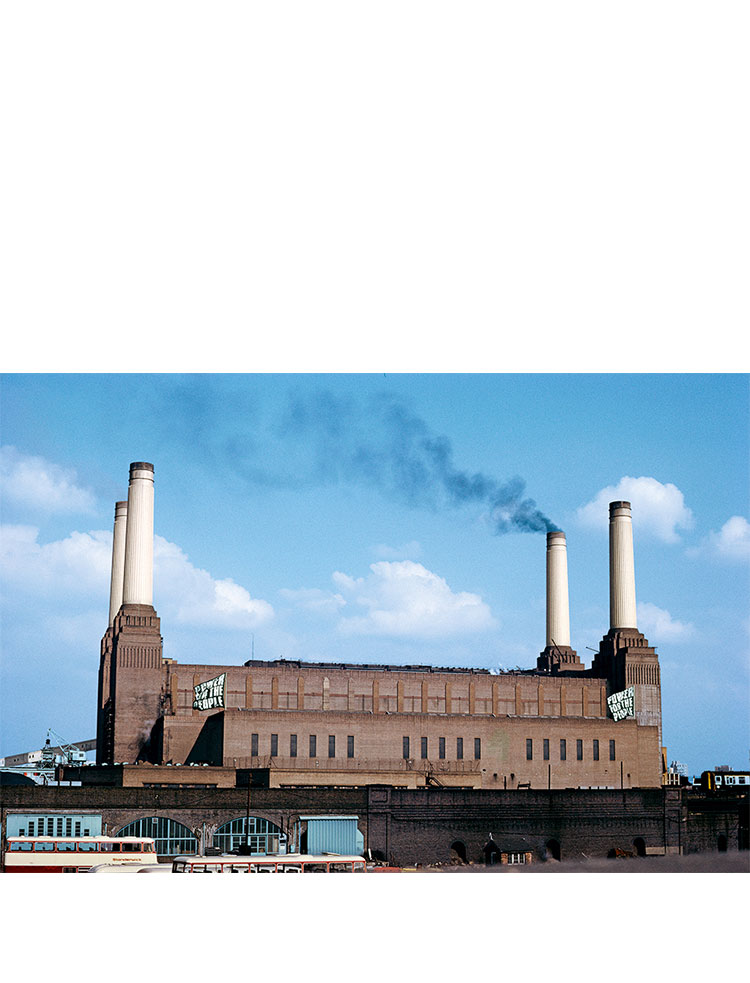ROSE FINN-KELCEY
Rose Finn-Kelcey first came to prominence in the early 1970s as a central figure in the emerging communities of performance and Feminist art in the UK.
Her artistic oeuvre is characterised by unpredictability, with each work changing dramatically from one to the next. The complex thinking embodied in her work incorporates themes of power, dilemmas of mastery, the myth of the artist, the gaining of a voice, the deceptions of value, the nature of collaboration, the surrogate performer, spirituality, longing and death.
Rose Finn-Kelcey
Restored to her natural shape by nibbling rose petals
1977
Black & white photograph
H 64.5 x W 47.5 cm
Rose Finn-Kelcey
Here is a Gale Warning
1971-2011
Silver gelatin print
H 70 x W 46.6 cm
Rose Finn-Kelcey
The Restless Image: a discrepancy between
the seen position & the felt position
1975-2011
Black & white bromide print
H 88 x W 108 cm
Rose Finn-Kelcey
Divided Self (Speakers’ Corner)
1972-2011
Black & white silver gelatine photographic print
H 54.5 x W 76 cm
Rose Finn-Kelcey
Fog
1972-2011
‘Weather forecast’ flag
Nottingham Castle, Nottingham
Black and white photograph
H 54.5 x W 76 cm
Rose Finn-Kelcey
Power of the People
1972
C-type colour print
Signed and numbered by the artist
H 70 x W 46.6 cm
Rose Finn-Kelcey
Power for the People
1972
Documentation photograph #2
Colour photograph
W 61 x H 85.5 x D 4 cm
Unique
Rose Finn-Kelcey
Power for the People
1972
Documentation photograph #3
Black and white photograph
W 23.5 x H 29 cm
Unique
Rose Finn-Kelcey
The Boilermaker's Assistant
1978
Documentation photograph
Black and white photograph
W 51.5 x H 52.5 x D 3 cm
Series of 2
Rose Finn-Kelcey
Untitled: Boxing glove and bubble #3
C.1970s
Black and white photograph
W 33.5 x H 38 x D 3 cm
Unique
Rose Finn-Kelcey
Untitled :Boxing glove and bubble #4
C.1970s
Black and white photograph
W 33.5 x H 38 x D 3 cm
Unique
Rose Finn-Kelcey
Untitled: Bullfighter
1986
Black and white photograph
W 42 x H 44 x D 3cm
Unique
Rose Finn-Kelcey
Glory
1983
Card, metal, wood, speakers, sound system, acrylic, arrow, red gloves
(A performance involving 100 cardboard cut-out surrogate performers, croupiers shovel, other implements and sound track)
Rose Finn-Kelcey
Untitled bench drawing #2
C. 1970s
Pencil on paper
W 84.3 x H 63 x D 3.8 cm
Unique
Rose Finn-Kelcey
Untitled drawing
’Memory fades more in some parts of the picture than in others’
C. 1970
Pencil drawing on paper, framed
W 26 x H 92.5cm
Unique
Rose Finn-Kelcey
Ego / Non-Ego
1994
Handout: Paper, sponge and plastic bag
W 36 x H 45 x D 6 cm
Unlimited
Rose Finn-Kelcey
One for Sorrow, Two for Joy
1976 -2012
2 photographs mounted on aluminium
Framed dimensions: H 170 x W 56.5 cm
Unique in this size
Rose Finn Kelcey
God Kennel – A Tabernacle
1992
MDF, paint
Unique
Rose Finn-Kelcey
Bureau de Change
1987
£1,000 of loose change, wooden floor, surveillance camera and monitor, auctioneer’s stand/viewing platform and security guard wearing full Tate uniform.
L 22.9 x H 15.2 cm
Rose Finn-Kelcey
Bureau de Change (detail)
1987
Rose Finn-Kelcey
Pearly Gate
1997
Wood, aluminium, customised car paint
L 694 x H 260 x D 135 cm
Unique
Rose Finn-Kelcey
Angel
2004
Shimmer-discs, plastic, metal, wood
L 1500 x H 520 cm
From 1975–1985 Finn-Kelcey's work was almost entirely performance based, including works such as ‘One for Sorrow Two for Joy’ (Acme Gallery, London 1976) and ‘The Boilermaker’s Assistant’ (London Calling, 1978).
In 1980 she introduced the idea of a 'vacated performance' in an effort to express a desire to be both inside and yet objectively outside a work, as epitomised by ‘Mind the Gap’, (ICA, London, 1980), ‘Glory’ - a compelling reaction to the Falklands War (Serpentine Gallery, 1983) and ‘Black and Blue’ (Matt's Gallery, London, 1984). The late 1980s saw a move towards installation-based work with a performative element, notably, ‘Bureau de Change’ (1987) a response to the auction of Van Gogh's ‘Sunflowers’, a striking visual polemic against dehumanised values as well as a complex meditation on art and creativity.
In the early 90s Finn-Kelcey challenged the material and spiritual limits of the built environment with works such as her room sized block of steam; held in place by cold air curtains (The Chisenhale Gallery, London, 1992 and Saatchi Gallery, London, 1993).
Rose Finn-Kelcey's work can be found in national and international collections, most notably within the Tate Gallery Collection, The Arts Council Collection, The British Council Collection, The Victoria & Albert Collection, the Welkunst Foundation and the Bernard Starkman Collection.
Rose Finn-Kelcey was born in Northampton in 1945. She studied at Ravensbourne College of Art and Design, and at Chelsea School of Art, London. She lived and worked in London from 1968 until her death in 2014.
For sales enquiries contact:
Kate MacGarry
For exhibition enquiries contact:
Andrée Cooke













